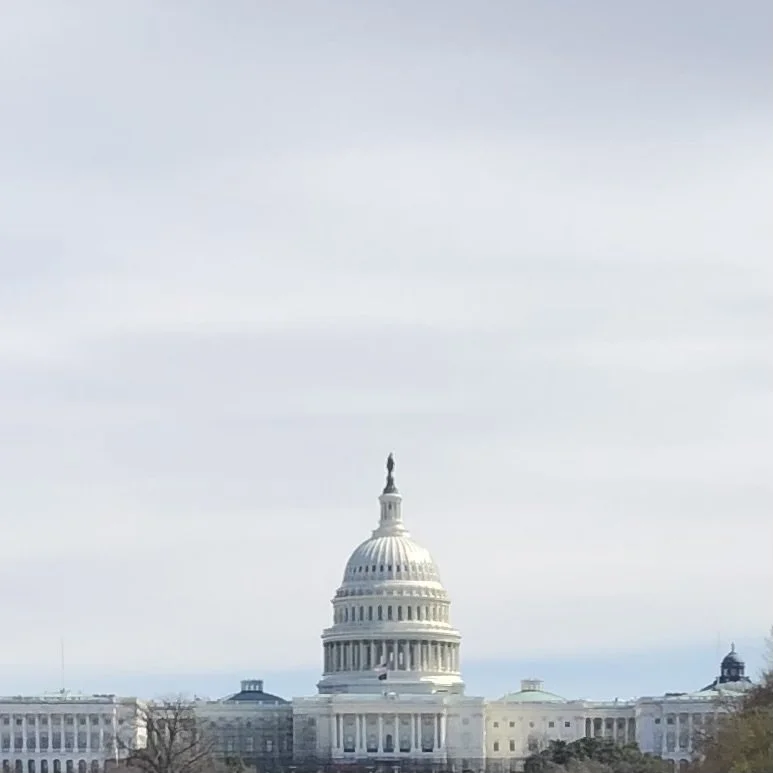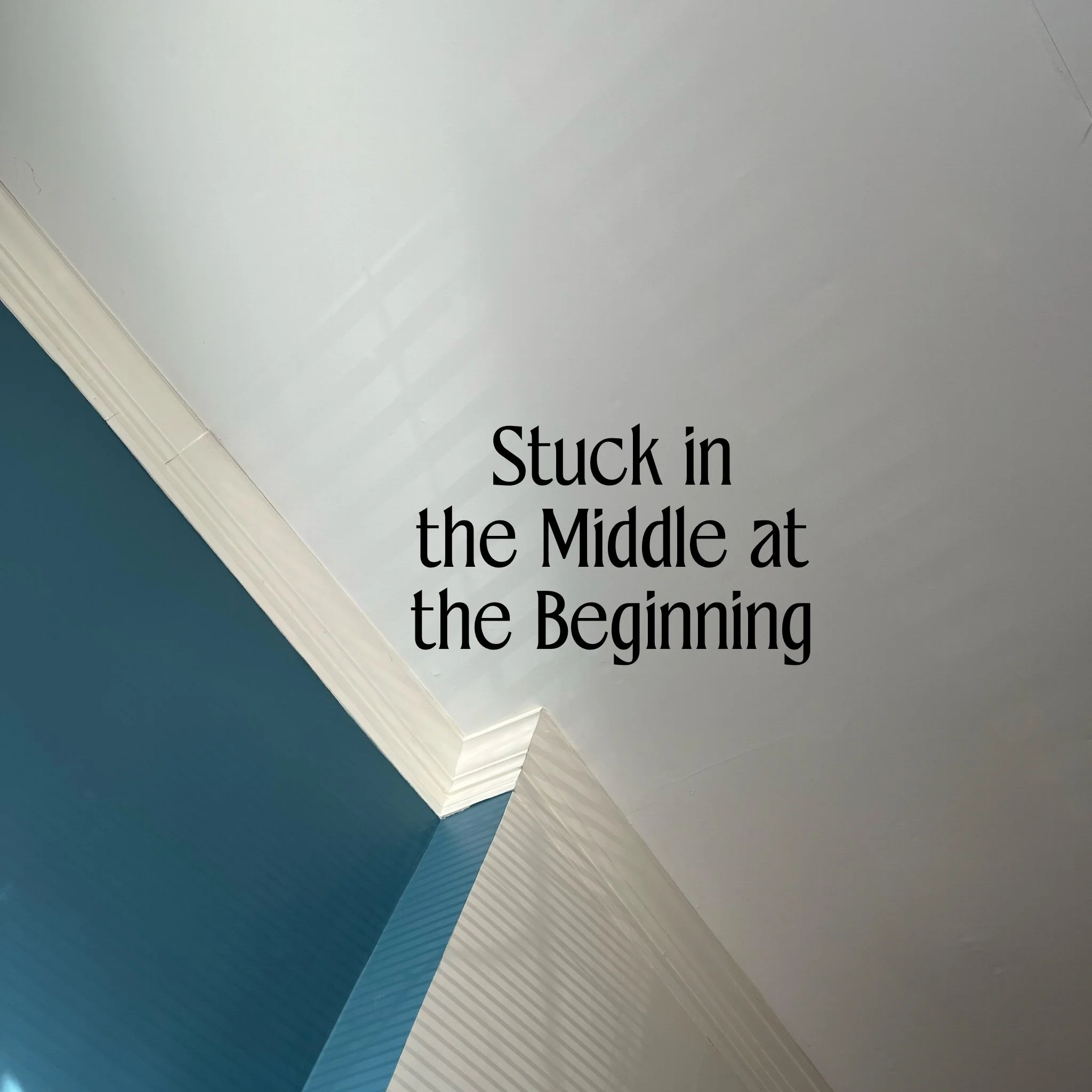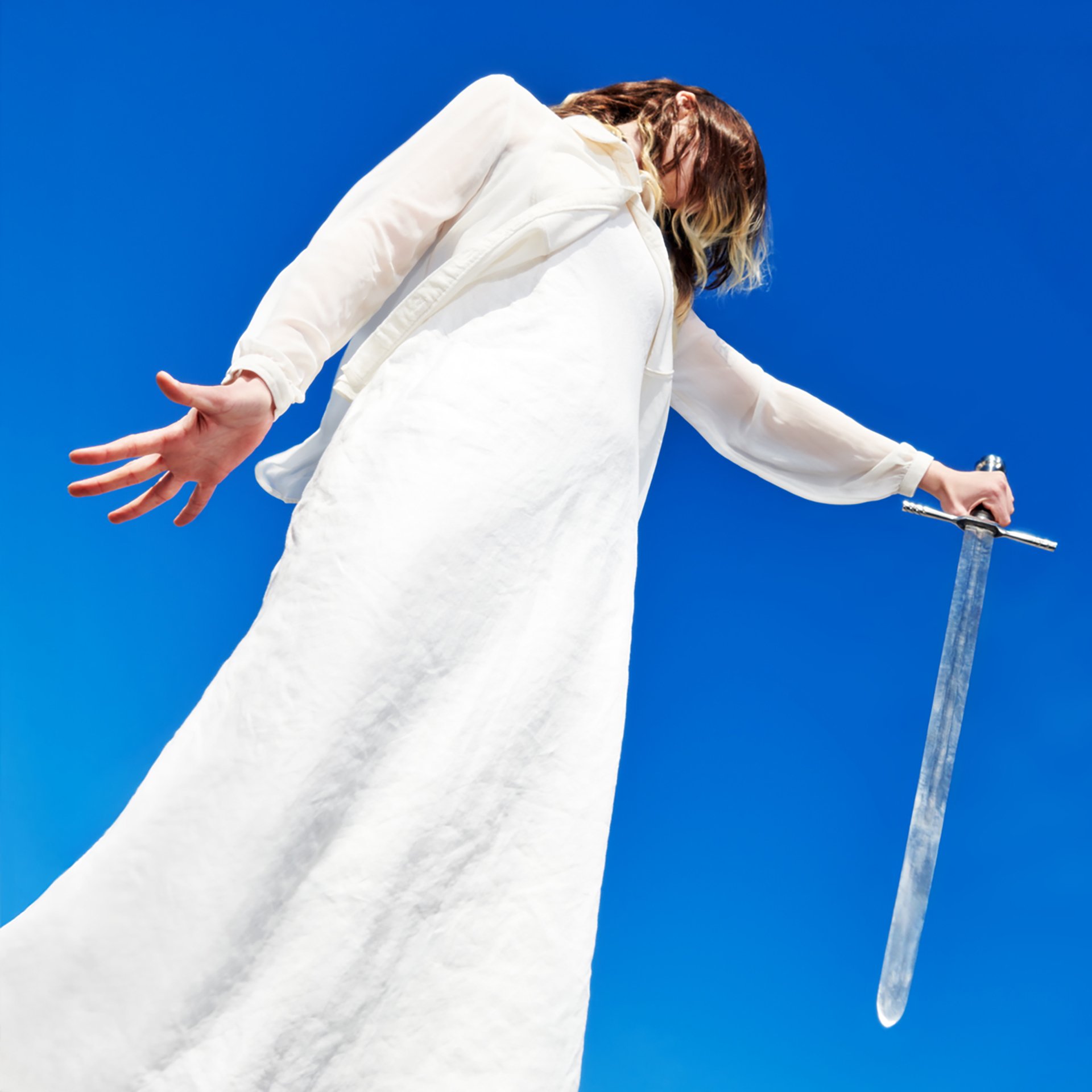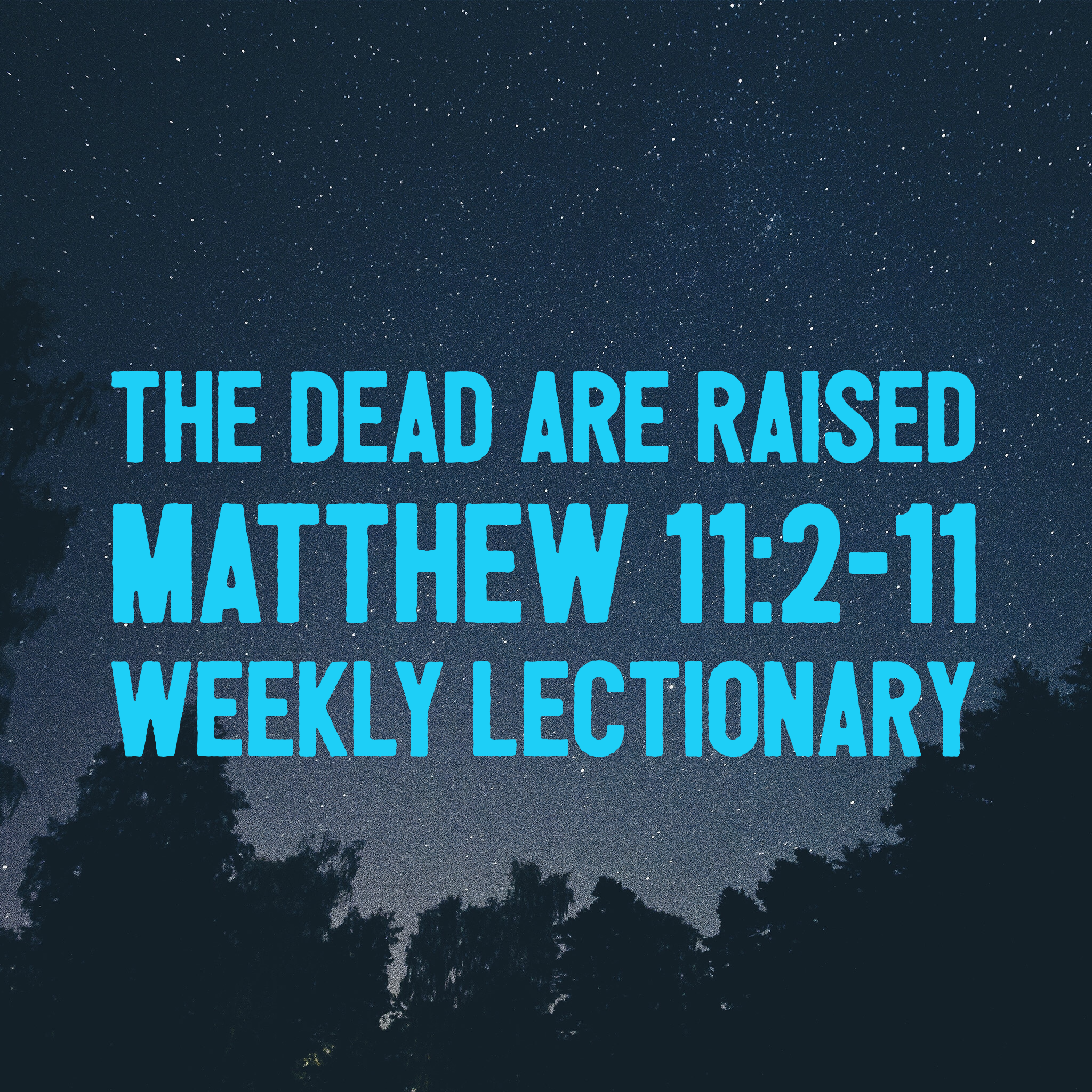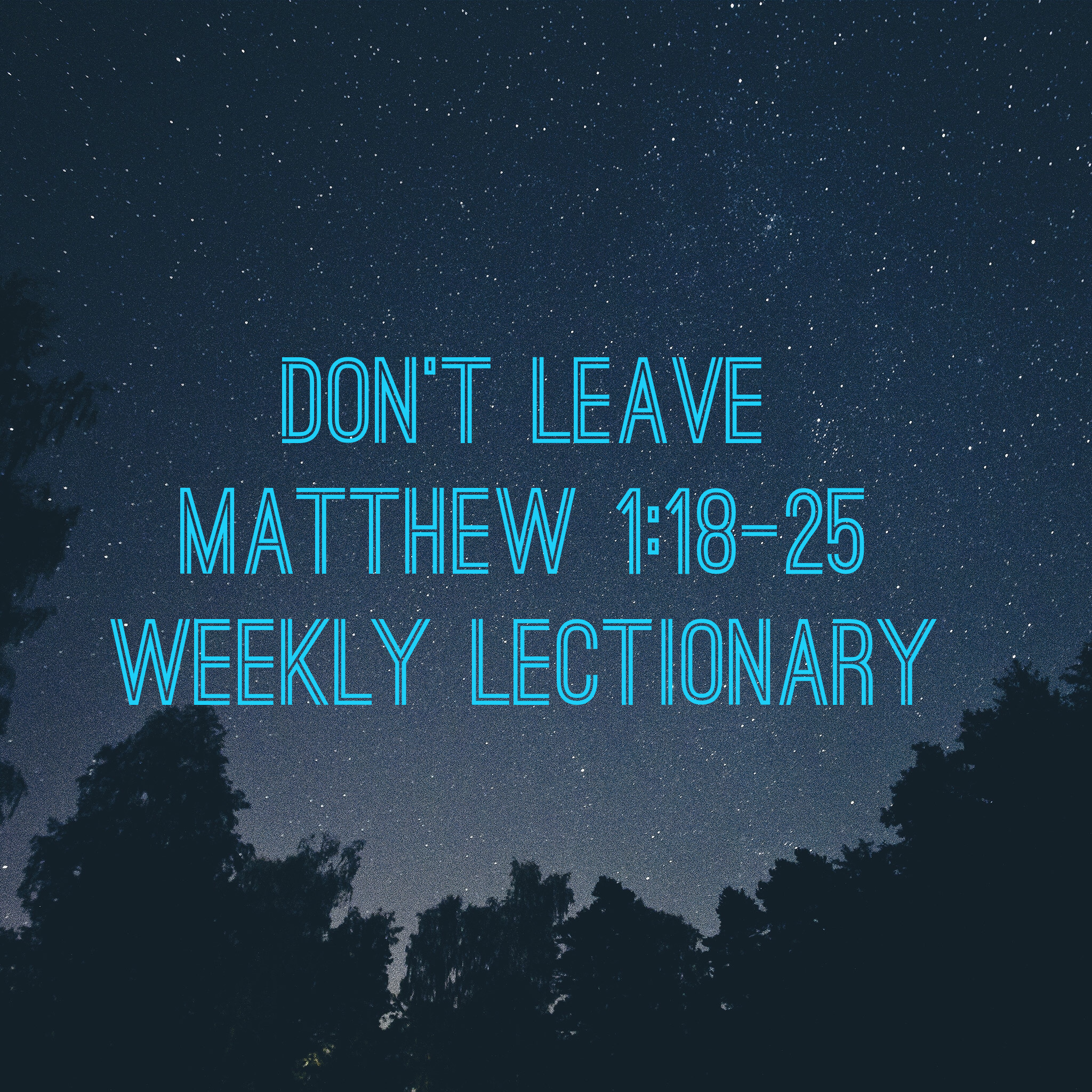The Dead Are Raised
Matthew 11:2-11
Gospel Reading for the Third Sunday of Advent (Year A)
"Are you the one?"
That question in itself was a bit awkward. John the Baptist and Jesus had history. They were cousins. John had baptized Jesus. In Matthew's account, there was even an exchange where the baptizer balked at immersing his relative from Nazareth. If anyone was to be baptizing the other, John reasoned, it should be Jesus. And then there was the language John used in the wilderness. He baptized with water, but the one coming after him would baptize with the Holy Spirit and fire. John clearly saw himself as a prelude.
"So are you the one? How do we know?"
The answer seems crystal clear. But it only seems obvious after the fact. What exactly was the Messiah supposed to do? Jesus was special, but was he the special one? Is this what John had been waiting for or should he continue to preach of that one still to arrive? After the fact, people read that question as a declaration of doubt. Yet it was a good question. It was awkward, but it was a question that needed to be asked.
"Are you the one or should we wait for someone else?"
The response that Jesus gave to John's disciples was simple. Tell John what you have seen and heard: the blind see, the lame walk, lepers are cleansed, the deaf hear, the dead are raised, and the poor receive good news. The KJV follows up this verse with, "And then the Lord did droppeth the mic." Some ancient witnesses have that verse. Maybe one does. Don't hold me to it.
Jesus responds that this is what he is about: bringing light into dark places, giving hope to the hopeless, practicing resurrection. It's very much in line with the Isaiah passage that Jesus reads in the Gospel of Luke: "The Spirit of the Lord is upon me, because He has anointed me to proclaim good news to the poor. He has sent me to proclaim freedom for the prisoners and recover of sight for the blind, to set the oppressed free, to proclaim the year of the Lord's favor."
Jesus didn't give a straight answer, which wasn't too unusual for the teacher. He simply pointed to his actions, all of which demonstrated he was about the same things God was about. By the fruits you will know and know that the dead are raised.
I feel like the American church is the recipient of an awkward sort of question right now. The question isn't as loaded as "Are you the Messiah?" Yet it's still dramatically important. It's a question of "Do you still matter? Do you have anything to offer a country that is hurting?" Some people bristle at the fact that the question would even be asked and cite that as evidence that this country is too far gone.
But is it truly a bad question? Because if we are going by the criteria that Jesus listed, is the American church going about God's business? Are we brining healing for the suffering and good news for the downtrodden? I am not asking whether the American church is performing literal miracles, but are we practicing resurrection? Are we a light in the world or are we another closed door?
It's a good question, whether we actually have anything to offer. I think it's a question that Advent brings to the surface. It's my hope that I can practice resurrection, that I can teach my students to do the same, and that we can be a part of a community that brings light. And if that question is ever asked of us, we can point to what God has done.

